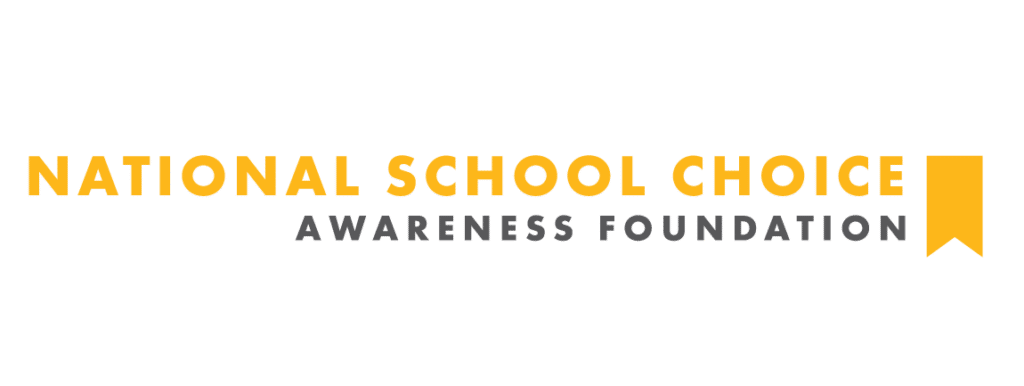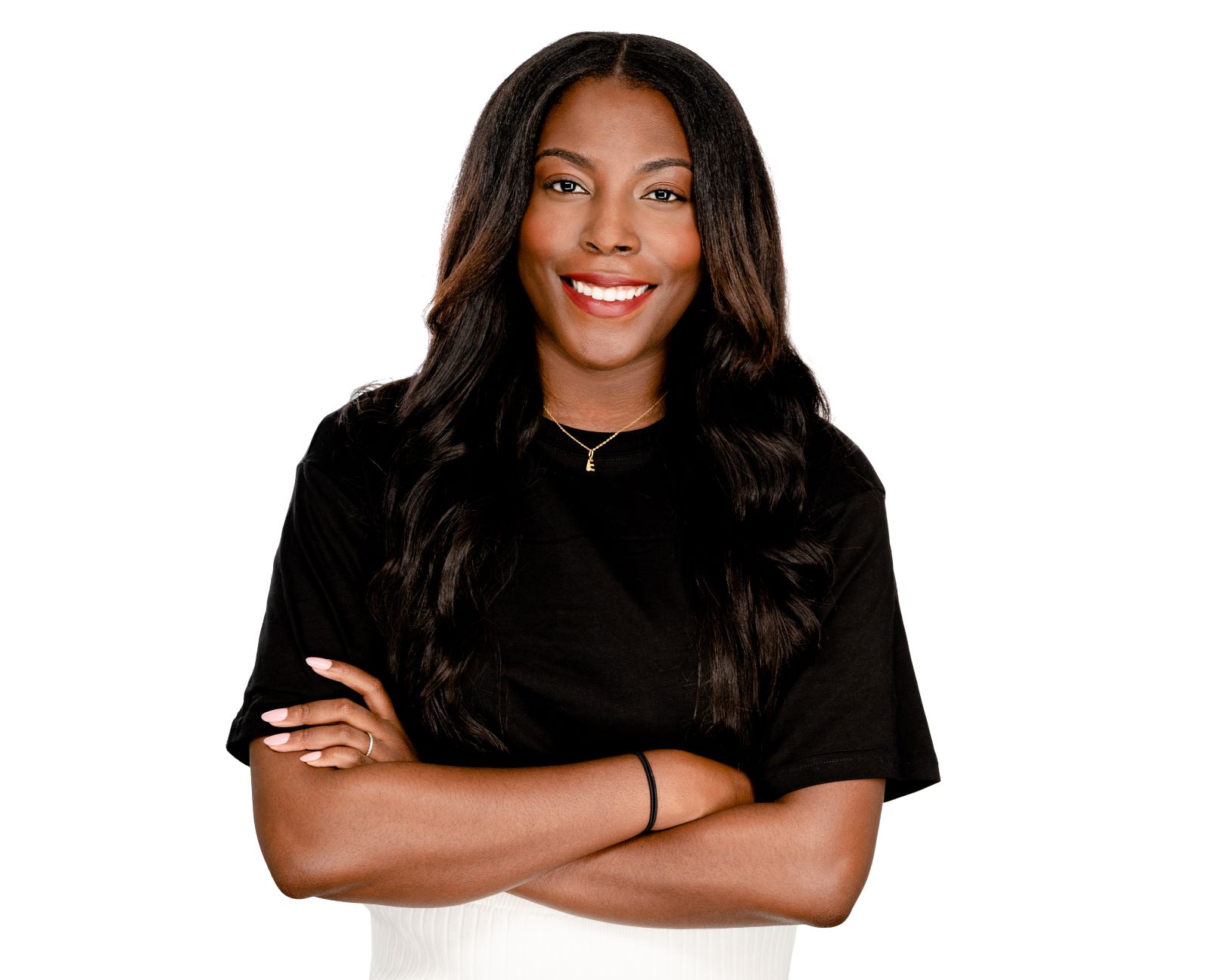School choice is the new norm, impacting the majority of American family’s K-12 education experience. In a survey conducted January 3-6, 2022 by National School Choice Awareness Foundation, more than half of parents said that they were considering, or had considered in the last year, choosing a new or different school for one of their children.
The survey was delivered to Survey Monkey’s National Audience between January 3rd and 6th, 2022, with no reference to National School Choice Week to prevent biasing any responses. This panel consists of millions of respondents who opt in to receive and complete surveys. Results are census-weighted to ensure that one geographic or demographic group does not skew the survey’s results. Our respondents included 2,715 parents of children between ages 5 and 18 years old. The margin of error is +/- 2 percent.
Download toplines and question summaries.
Key Findings
Half of U.S. parents (52 percent) considered finding a new or different school for at least one of their children within the past year or are currently considering finding a new or different school for at least one of their children.
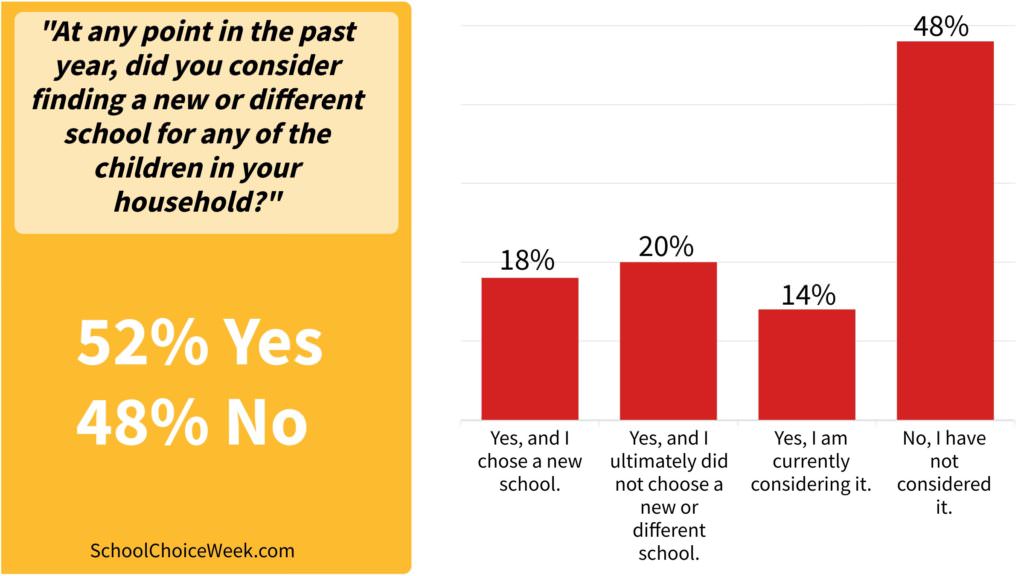
18 percent of parents chose a new school for at least one child in their household within the past year.
Parents say they wish they had more time to consider schooling options for their children, while advising other parents to keep the school search process focused on the needs of children.
- 47 percent of parents indicated, “I wish I had more time to consider the schooling options for my child.”
- When asked to provide advice to other parents considering new schools for their children, “Keep the focus on your child’s needs,” was the top choice (16 percent), “visit schools in-person and/or attend school fairs to talk with teachers/administrators,” was the second most-indicated choice (15), and “give yourself enough time to consider all of your options” was the third most-indicated choice (14). Only 7 percent of parents encouraged other moms and dads to “ask family, friends, and other parents for their advice.”
The top reasons parents considered new or different schools for their children were education quality and COVID disruptions.
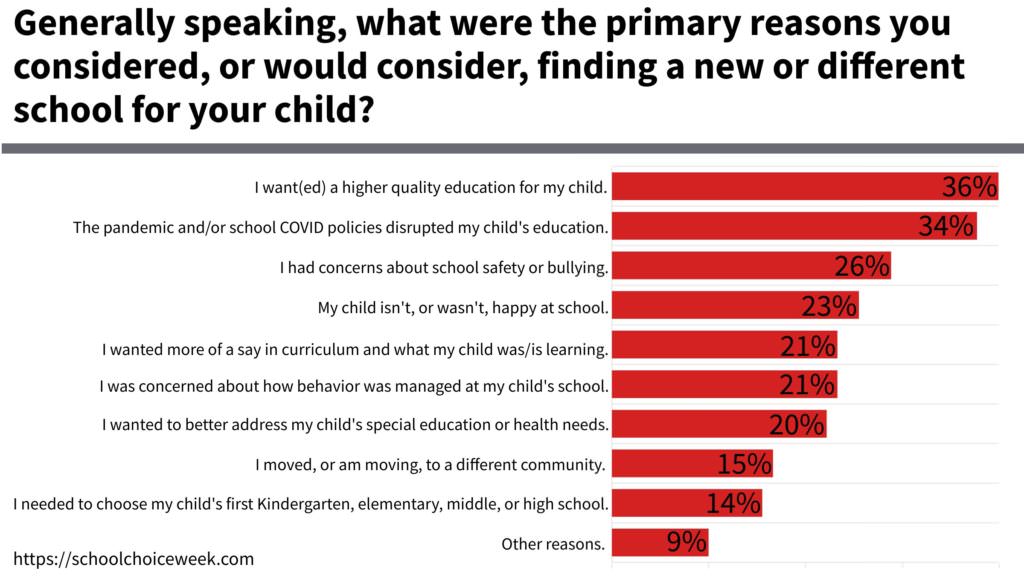
34 percent of parents indicated that “the pandemic and/or school COVID policies disrupted my child’s education” was a primary reason for considering new school. 26 percent of parents indicated that “concerns about school safety or bullying” was a primary reason for considering new school.
36 percent of parents indicated that they “wanted a higher quality education for [their] child” as a primary reason for considering new school.
Black and Hispanic parents are searching for schools in higher percentages than white parents.
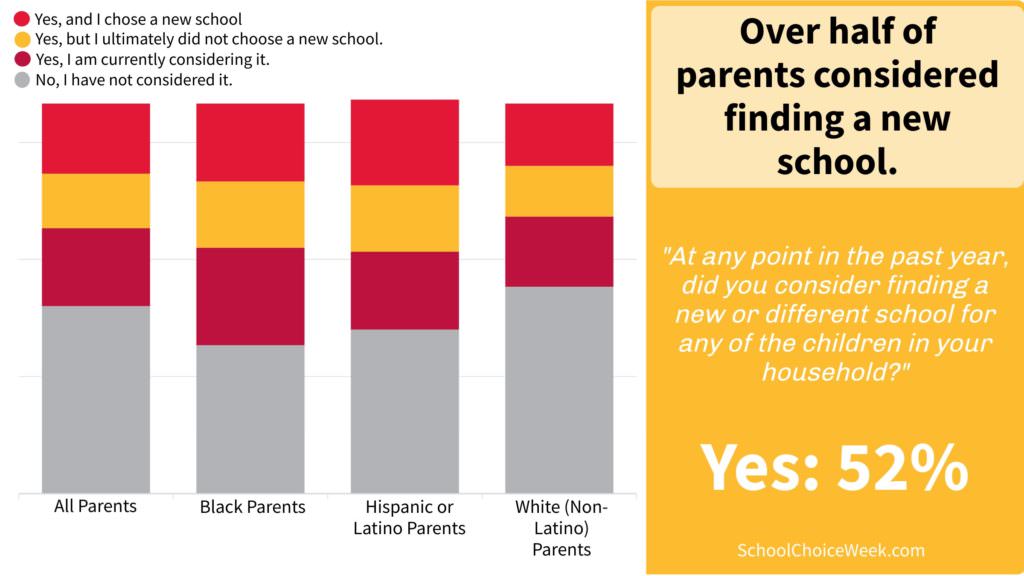
Parents want schools that prepare students for real-world success and focus on quality academics. When asked what factors were most important in evaluating whether a school is/was the right fit for their children,
- 24 percent of parents indicated they prioritize a school that “prepares students to succeed in the real world.”
- 20 percent of parents indicated they prioritize a school that “helps students develop critical thinking skills.”
- 20 percent of parents indicated they prioritize a school that “has highly-trained, qualified teachers.”
- 18 percent of parents indicated they prioritize a school that “focuses on core subjects, such as reading, writing, math, science, and history.”
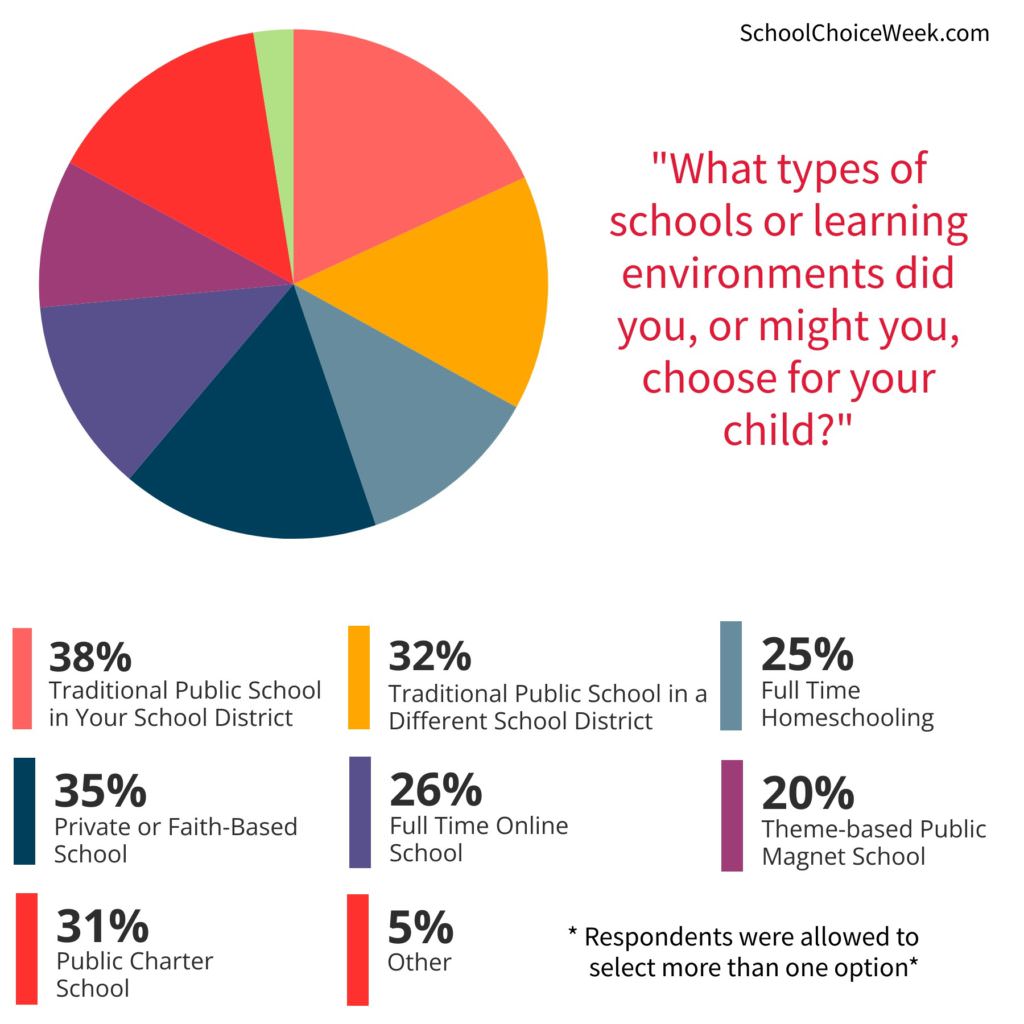
Parents indicated a willingness to choose or consider a wide range of schooling options for their children.
Among parents who considered, are considering, or plan to consider finding new or different schools for their children, a wide variety of options were given similar consideration, including traditional public school in their district, private school, traditional public school in a different district, public charter school, online school, homeschooling, and public magnet school.
Among parents of school-aged children, support for school choice is overwhelming – with high percentage of support across all races and geographics.
- 69 percent of parents say they strongly support, support, or somewhat support school choice, with 31 percent indicating strong support.
- Support for school choice was highest among Black parents (73 percent overall support) and Hispanic or Latino parents (72 percent). 69 percent of white parents indicated support for school choice.
- 71 percent of parents in cities or urban areas indicated support for school choice; 82 percent of parents in rural areas indicated support for school choice; and 68 percent of parents in suburban areas indicated support for school choice.
Find out more about National School Choice Week or how school choice works. If you’re a journalist covering education issues, we invite you to check out our press page.
